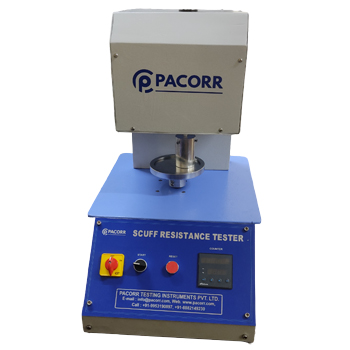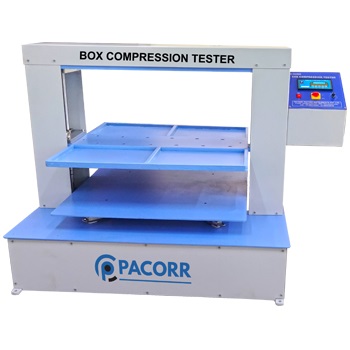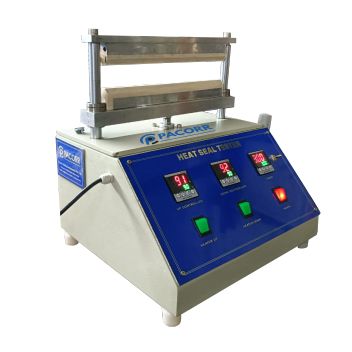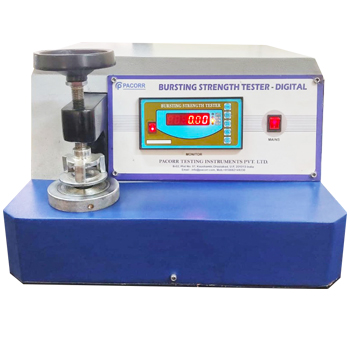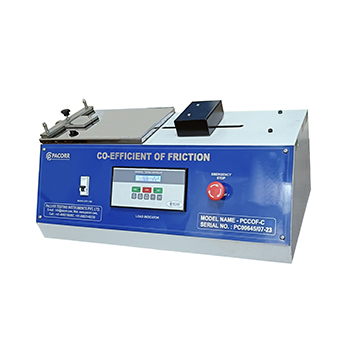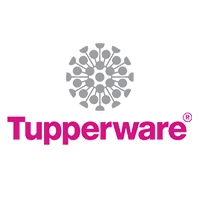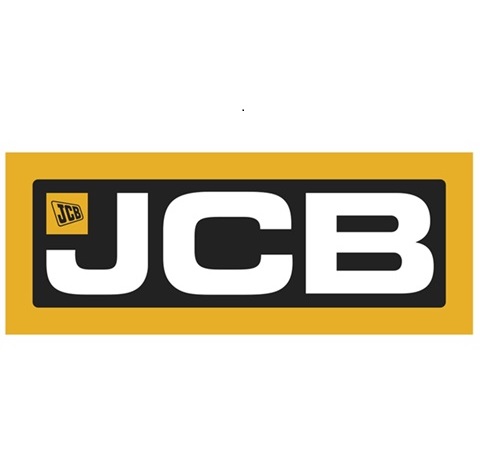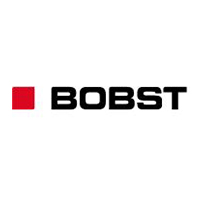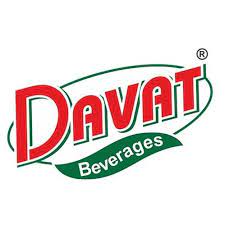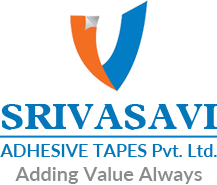The Scuff Resistance Tester is an advanced device designed to evaluate the durability of printed or coated materials by simulating real-world abrasion and friction. Ideal for industries such as packaging, consumer goods, and pharmaceuticals, it ensures that surfaces retain their appearance and functionality throughout handling, transportation, and everyday use, safeguarding both product quality and brand reputation.
- Shipping Area: All over the world
- Model: PCSRT-1
The Scuff Resistance Tester is your go-to solution for evaluating the durability of printed or coated materials. Engineered to simulate real-world abrasion and friction, this advanced device ensures your products meet the highest standards of quality and resilience. From packaging to consumer goods, this tester helps protect your brand’s image by maintaining the appearance and functionality of materials over time.
Key Features:
- Real-World Simulation: Replicates handling, transportation, and daily wear conditions.
- Customizable Settings: Adjust cycles, speed, and pressure for tailored testing.
- Easy Operation: Intuitive design for quick and efficient testing.
- Reliable Results: Provides accurate wear and fade analysis to enhance material performance.
Why Choose the Scuff Resistance Tester?
- Improve Product Quality: Identify and address vulnerabilities early in the design phase.
- Boost Customer Satisfaction: Ensure products retain their appeal and usability throughout their lifecycle.
- Reduce Costs: Minimize recalls and product failures by validating durability.
- Industry Compliance: Meet rigorous quality standards and regulatory requirements effortlessly.
Simple Testing Process:
- Secure the material sample in the tester.
- Set desired parameters for friction cycles, speed, and pressure.
- Run the test to simulate real-world conditions.
- Inspect the sample for wear, abrasion, or fading.
Applications Across Industries:
- Packaging: Keep labels and branding pristine during transit.
- Pharmaceuticals: Ensure critical information remains legible.
- Consumer Goods: Validate coatings on electronics, furniture, and more.
By incorporating this device into your quality control routine, you demonstrate a commitment to delivering superior products that excel in durability and performance. It’s an essential tool for industries that value precision and reliability, offering peace of mind that your materials are built to withstand real-world demands.
The Scuff Resistance Tester not only guarantees high quality but also promotes sustainable practices. By minimizing material waste and avoiding expensive recalls, it supports eco-friendly manufacturing objectives. Investing in this tester means committing to superior products while also fostering a greener and more responsible future.
Ready to Elevate Your Quality Control?
Integrate the Scuff Resistance Tester into your workflow and take your quality assurance to the next level. Protect your brand’s reputation and deliver products that stand up to the demands of real-world use.
Specification:-
- Digital Counter
- Weight on Sample: 2 psi
- Max. Count: 0 – 99999
- Least Count of Counter: 1
- Speed: 60 rpm & 45 rpm
- Sample Size: 48mm & 120mm
- Templates to prepare samples: 3 Nos.
- Paint: Powder coated
- Power Supply: 220 V AC, Single Phase, 50Hz
- Related Standard: BS 3110, ASTM F2497-05
Features:-
- Motorized Weight Arrangement: Ensures noise-free testing and uniform vertical load application for precise results.
- Accurate Force Application: Applies force evenly within a specified diameter for consistent outcomes.
- Digital Preset Counter: Allows setting up to 4-digit test cycles for customizable testing.
- Secure Clamping System: Circular clamps hold specimens tightly, eliminating movement and errors.
- Precise Scuff Movement: Motorized gearing ensures accurate and consistent abrasion.
- Synchronous Motor Precision: Delivers high-accuracy RPM through reliable rotating discs.
- Safety Lock: Upper clamp includes a secure lock for safe operations.
FAQ's
Q1. What is the purpose of a Scuff Resistance Tester?
A. The Scuff Resistance Tester plays a vital role in assessing the durability and quality of printed or coated materials. It is specifically designed to test the resistance of surfaces to rubbing, friction, or abrasion. By replicating real-world conditions, it ensures that labels, prints, or coatings on products remain intact and maintain their visual appeal and functionality throughout handling, transportation, and regular usage. This makes it an essential tool for ensuring product longevity and customer satisfaction.
Q2. Which industries commonly use a Scuff Resistance Tester?
A. A Scuff Resistance Tester is widely used across several industries where material durability is critical, such as:
- Packaging: To verify the robustness of printed designs, logos, instructions, and barcodes on packaging materials during storage and transit.
- Printing: To test the wear resistance of printed items like books, brochures, magazines, and labels under frequent handling.
- Textiles: To ensure abrasion resistance and durability of printed patterns or coated fabrics used in clothing, furnishings, and other textile applications.
- Automotive: To evaluate the scuff resistance of interior components like dashboards, upholstery, and trim pieces, ensuring they maintain their appearance during regular use.
Q3. How does a Scuff Tester simulate real-world conditions?
A. A Scuff Tester replicates real-world conditions by applying controlled friction to materials through a mechanical rubbing action. Users can adjust critical parameters such as rubbing speed, applied pressure, and the number of cycles to tailor the test to specific scenarios. This level of customization ensures accurate and reliable simulation of the wear and tear materials may encounter during their lifecycle.
Q4. Does a Scuff Tester follow any international standards?
A. Yes, Scuff Resistance Testers are designed to adhere to recognized international standards such as ASTM F2497-05 and BS 3110:1959. These standards establish a consistent framework for conducting tests, ensuring the results are precise, repeatable, and in alignment with global quality benchmarks. Manufacturers can confidently rely on these devices for quality assurance and compliance with industry regulations.
Q5. What are the benefits of using a Scuff Tester?
A. Integrating a Scuff Tester into production processes offers numerous advantages, including:
- Quality Enhancement: It helps detect and address potential material weaknesses early in the production phase.
- Defect Reduction: By ensuring durable and reliable products, it minimizes manufacturing defects and related costs.
- Customer Satisfaction: Durable products enhance customer trust and satisfaction, reducing complaints and returns.
- Reputation Building: By producing high-quality, resilient materials, manufacturers can strengthen their market reputation and customer loyalty.
- Cost Savings: Early identification of material flaws can prevent expensive recalls, replacements, or waste, resulting in significant cost reductions.
Q6. What is the price range for a Scuff Resistance Tester?
A. The price of a Scuff Resistance Tester varies depending on the model and specifications, generally ranging between 50,000 to 2,20,000 INR. This device is crucial for assessing the durability of printed materials against scuffing and rubbing, ensuring that packaging and products maintain their visual appeal under stress. For detailed pricing and model selection tailored to your testing needs, reaching out to Pacorr directly is recommended.
Related Products
Our Clients
Thanks to Pacorr Testing instruments, we have all the required quality testing instruments that have helped us to ensure the best quality delivered to our clients.

Danish
Fair Exports Pvt. Ltd.

